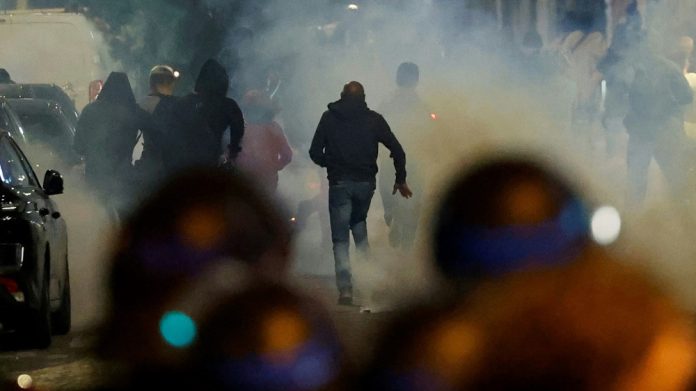In connection with the nationwide protests that took place in June, more than 700 people have received prison sentences, according to French Justice Minister Eric Dupond-Moretti, who applauds the expedited legal processes that have drawn the attention of some defense attorneys.
According to Eric Dupond-Moretti, who spoke with RTL radio on Wednesday, 1,278 verdicts were rendered overall, and the majority of defendants—more than 95% of them—were found guilty of crimes ranging from vandalism to assaulting police officers.
According to him, 600 of the more than 700 people who were given prison sentences have already been imprisoned.
read more: France deploys 45,000 troops to quell police brutality protests
After a police officer fatally shot 17-year-old French-Algerian Nahel Merzouk during a traffic stop in the Paris suburb of Nanterre on June 27, the most violent urban conflict in France since 2005 broke out.
His murder reignited long-standing complaints about racial profiling and police brutality, sparking widespread demonstrations across France. Approximately 45,000 security personnel, including elite police special forces and armored vehicles, were deployed after four nights of fierce fighting, which was largely blamed for the protests.
Fast-track trials and severe punishments were used as a deterrent by Dupond-Moretti against further demonstrations, with some courts remaining open on the weekend to handle a backlog of cases.
Since many suspects were tried quickly, some defense attorneys expressed concerns about the justice of the legal system and the frequent use of prison time.
The more than 3,700 people detained had an average age of just 17. According to reports, the minors were tried in separate juvenile courts.
The UN Committee on the Elimination of Racial Discrimination (CERD) criticized France’s “excessive use of force by law enforcement” earlier this month and urged Paris to pass legislation defining and outlawing racial profiling.”
The most recent unrest in France has created a serious crisis for President Emmanuel Macron, who had hoped to move forward with the commitments he had made for his second term after putting an end to months of violent protests that began in January over his decision to raise the retirement age.













